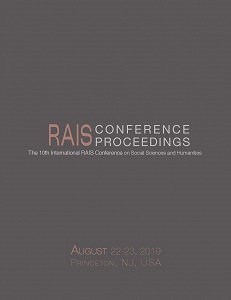Billets, Bombs and Babies: How the State Shaped the Narrative of Birth during the Second World War
Billets, Bombs and Babies: How the State Shaped the Narrative of Birth during the Second World War
Author(s): Carly-Emma M. White
Subject(s): Family and social welfare
Published by: Scientia Moralitas Research Institute
Keywords: England and Wales; health and social care; maternity care;
Summary/Abstract: The health and social historiography of the Second World War is closely bound to the British national narrative of total war and the conflagration of the home front. The organisation of welfare structures during the conflict put enormous strain on existing socio-political constructs, if only because the state had to intervene in the day to day life of the nation on a scale not seen before. The prime initial concern was to minimise civilian death during enemy bombing, as losses in the hundreds of thousands were expected in the first few months of war. Plans were made to evacuate non-essential and vulnerable inhabitance from major cities and towns of. Displacement on this scale meant that medical and social services were similarly likely in need of significant reorganisation to match patient need and service location. In anticipation of this, the state created the Emergency Medical Service (EMS) to re-organise services within a supposedly more unified, planned national system. Using the Emergency Maternity Service as a case study, this paper seeks to explore the way in which the disruption of total war prompted the state to cross the threshold of the home into what was previously a private sphere - the family.
Book: Proceedings of the 10th International RAIS Conference on Social Sciences and Humanities
- Page Range: 142-147
- Page Count: 6
- Publication Year: 2018
- Language: English
- Content File-PDF

